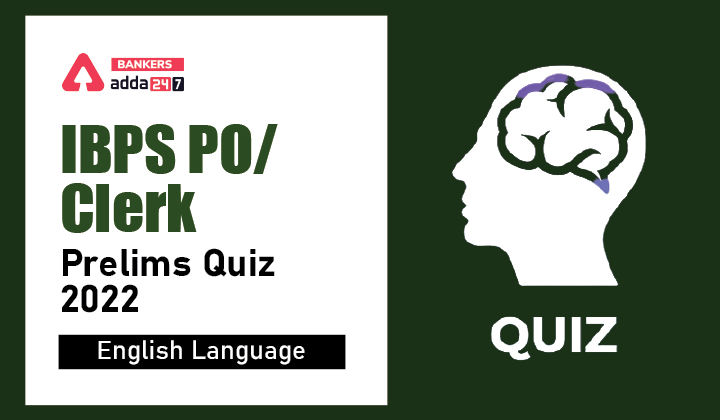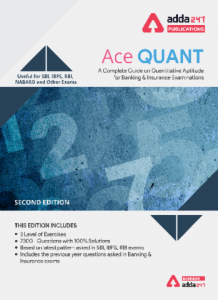Directions (1-5): Rearrange the following six sentence (A), (B), (C), (D), (E) and (F) in the proper sequence to form a meaningful paragraph and then answer the questions given below.
(A) No doubt, a universal language may help in the cultural unification of the people of the world and remove misunderstanding that grows out of inability to communicate effectively, but the practical difficulty is to find out such a language.
(B) Since language is a great medium of communication, the assumption has been made that if the people of the world have the same language it may help a great deal removing the culture barriers and bring the people of the world nearer to each other.
(C) As yet no universal single language has been agreed upon and consequently the linguistic differences continue.
(D) Not only that, people living in the same territory use different languages of speak different dialects.
(E) The people of the different parts of the world speak different language.
(F) These differences in the language of the people of the world have served to limit inter-group communication and perpetuate social isolation.
Q1. Which of the following should be the FIRST sentence after rearrangement?
(a) A
(b) B
(c) D
(d) E
(e) F
Q2. Which of the following should be the SECOND sentence after rearrangement?
(a) B
(b) D
(c) A
(d) C
(e) E
Q3. Which of the following should be the THIRD sentence after rearrangement?
(a) C
(b) E
(c) B
(d) A
(e) F
Q4. Which of the following should be the LAST (SIXTH) sentence after rearrangement?
(a) D
(b) B
(c) C
(d) F
(e) A
Q5. Which of the following should be the FOURTH sentence after rearrangement?
(a) B
(b) F
(c) E
(d) D
(e) C
Directions (6 – 10): In the following passage there are blanks, each of which has been numbered. These numbers are printed below the passage and against each, five words/ phrases are suggested, one of which fits the blank appropriately. Find out the appropriate word/phrase in each case.
Mobile banking (M banking) involves the use of a mobile phone or any other mobile device to (6) financial transactions linked to a client’s account. M banking is new in most countries and most mobile payments models even in developed countries today operate on a (7) scale. A mobile network offers a (8) available technology platform onto which other services can be provided at low cost with effective results. For example, M banking services which use (9) such as SMS can be carried at a cost of less than one US cent per message. The low cost of using existing infrastructure makes such services more (10) to be used by customers with lower purchasing power and opens up access to services which did not reach them earlier due to high cost of service delivery.
Q6.
(1) disburse (2) undertake (3) subscribe (4) lure (5) amass
Q7.
(1) full (2) voluminous (3) substantial (4) limited (5) rapid
Q8.
(1) readily (2) tangible (3) routinely (4) securely (5) unique
Q9.
(1) process (2) waves (3) deliveries (4) connection (5) channels
Q10.
(1) valuable (2) answerable (3) amenable (4) exposed (5) responsible
Directions (11-15): In each of the following sentences, a part of the sentence has been italicized. Below are given alternatives to the part italicized which may improve the sentence. Choose the correct alternative. Wherever no improvement is needed choose ‘No correction required’ or ‘No Improvement’ as the answer.
Q11. Walking has distinctly advantageous over driving as you see many things while walking that you often miss while driving.
(a) have advantages distinctly
(b) is indistinctly advantageous
(c) has distinct advantages
(d) is distinct in advantageous
(e) No correction required
Q12.He turned down our proposal which we had prepared by so much dedication.
(a) had prepared with
(b) have prepared by
(c) were prepared with
(d) have been preparing for
(e) No correction required
Q13. Although family TV serials do very, they have certain common elements.
(a) do not vary
(b) seldom vary
(c) rarely vary
(d) are varying
(e) No correction required
Q14. We have profound faith and hopes for the future.
(a) faith for also hopes for
(b) faith in and hopes for
(c) faiths and hopes for
(d) faith about and hopes in
(e) No correction required
Q15. They can’t decide who should they blame for inefficiency.
(a) whom they should blame for
(b) whom should they be blamed for
(c) whom should they blame on
(d) whom should they blame for
(e) No correction required
Solutions
S1. Ans. (d)
Sol. The correct sequence is EDFBAC
S2. Ans. (b)
Sol. The correct sequence is EDFBAC
S3. Ans. (e)
Sol. The correct sequence is EDFBAC
S4. Ans. (c)
Sol. The correct sequence is EDFBAC
S5. Ans. (a)
Sol. The correct sequence is EDFBAC
S6. Ans. (b)
Sol. undertake–perform the task of
For other options:
disburse– spend money
subscribe–pay for use of something.
lure–anything that attracts or entices.
amass–to gather something.
S7. Ans. (d)
Sol. limited–small or restricted (as it is new, it’s use is limited even in developed countries)
For other options:t80
substantial– ample amount
full–complete
voluminous– great in volume size or extent.
rapid–happening with speed.
S8. Ans. (a)
Sol. readily– quickly or easily.
For other options:
tangible– that can be touched and felt.
routinely– regularly.
securely–in a way free from danger or exposure safely.
unique– different from others.
S9. Ans. (a)
Sol. process (they use SMS as the process for transaction etc)
S10. Ans. (c)
Sol. amenable– affordable
For other options:
valuable– precious.
answerable– capable of being answered.
exposed– left without shelter or protection.
responsible– answerable; having
responsibility of something.
S11. Ans. (b)
Sol. ‘Distinct’, meaning marked or clear, is an adjective and ‘advantages’, a noun. Only these will suit the sentence.
S12. Ans. (a)
Sol. With the past action denoted by ‘turned down’, ‘had’ is correct, but the preposition required is not ‘by’ but ‘with’.
S13. Ans. (e)
Sol. ‘Do’ is used to lend emphasis to the principal verb ‘vary’.
S14. Ans. (b)
Sol. If the nouns need different prepositions, all the required preposition must be used. After ‘faith’, ‘in’ is to be used.
S15. Ans. (a)
Sol. ‘Who’ is an interrogative and a relative pronoun meaning ‘what person or people’. But ‘whom’ is the objective case of ‘who’, used as a direct or indirect object, e.g., whom did you call? As the sentence is declarative, the word order is ‘they should’ and not ‘should they’.





 GA Capsule for SBI Clerk Mains 2025, Dow...
GA Capsule for SBI Clerk Mains 2025, Dow...
 The Hindu Review October 2022: Download ...
The Hindu Review October 2022: Download ...
 IB ACIO 2025 Notification PDF Out for 37...
IB ACIO 2025 Notification PDF Out for 37...


